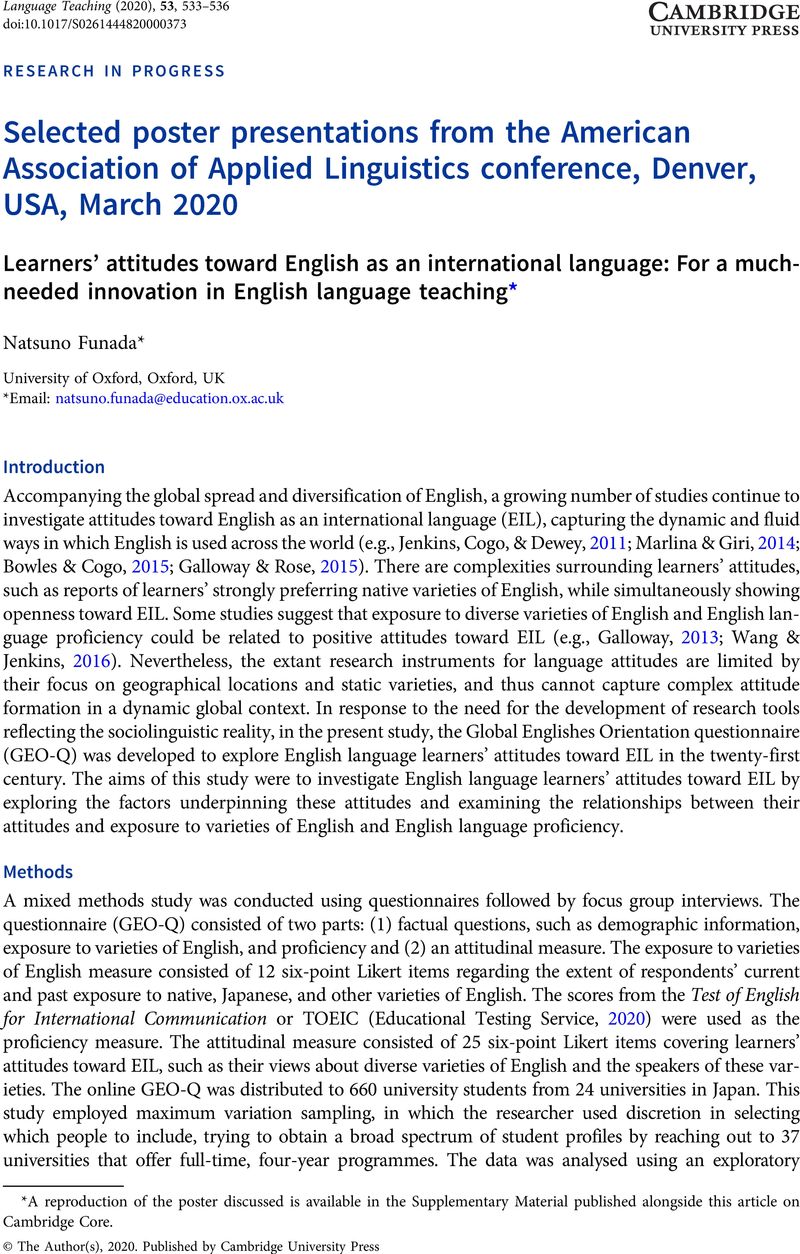No CrossRef data available.
Article contents
Selected poster presentations from the American Association of Applied Linguistics conference, Denver, USA, March 2020
Learners' attitudes toward English as an international language: For a much-needed innovation in English language teaching
Published online by Cambridge University Press: 24 August 2020
Abstract
An abstract is not available for this content so a preview has been provided. Please use the Get access link above for information on how to access this content.

- Type
- Research in Progress
- Information
- Copyright
- Copyright © The Author(s), 2020. Published by Cambridge University Press
References
Bowles, H., & Cogo, A. (2015). International perspectives on English as a lingua franca: Pedagogical insights. London, UK: Palgrave Macmillan.CrossRefGoogle Scholar
Educational Testing Service. (2020). The TOEIC ® Program. Retrieved from https://www.ets.org/toeicGoogle Scholar
Galloway, N. (2013). Global Englishes and English language teaching (ELT): Bridging the gap between theory and practice in a Japanese context. System, 41(3), 786–803.CrossRefGoogle Scholar
Galloway, N., & Rose, H. (2015). Introducing Global Englishes. Abingdon, UK: Routledge.CrossRefGoogle Scholar
Jenkins, J., Cogo, A., & Dewey, M. (2011). Review of developments in research into English as a lingua franca. Language Teaching, 44(3), 281–315.CrossRefGoogle Scholar
Kubota, R. (2018). Unpacking research and practice in world Englishes and second language acquisition. World Englishes, 37(1), 93–105.CrossRefGoogle Scholar
Marlina, R., & Giri, R. (2014). The pedagogy of English as an international language: Perspectives from scholars, teachers, and students. Cham, Switzerland: Springer International Publishing.CrossRefGoogle Scholar
Wang, Y., & Jenkins, J. (2016). ‘Nativeness’ and intelligibility: Impacts of intercultural experience through English as a lingua franca on Chinese speakers’ language attitudes. Chinese Journal of Applied Linguistics, 39(1), 38–58.CrossRefGoogle Scholar



